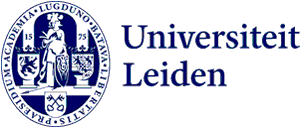
Rethinking the current migration debate
Anti-immigration protests over asylum seekers receive extensive attention, but PhD candidate Clare Fenwick says it’s a vocal minority taking to the streets. 'The silent majority might also have migration concerns, like job losses due to labour migration, but these views seem to remain outside public discourse.'
As an economist specialising in immigration, what are your thoughts on the anti-immigration protests?
‘People who take to the streets to demonstrate over asylum seekers are a minority, but they get all the attention because they are so vocal. It means that other issues related to immigration remain underexposed. A silent majority of Dutch people, who you don’t usually see at the demonstrations on the Malieveld in The Hague, might also be worried about immigration, but for other reasons and these concerns often remain outside the public debate.
If we look at the upside of immigration for the Netherlands, there’s no doubt that it’s good for our economy overall. The benefits for the treasury are greater than the costs: migration creates jobs and ensures economic growth. That said, some people also experience a downside of labour immigration. One example is that migrant workers might be willing to work longer hours for lower wages, or employers may use posted workers from other countries to avoid paying social security contributions. Thus, job security is a serious issue for people, especially now the cost of living keeps rising. Politicians need to pay attention to the people who are getting left behind.

What can politicians do to address these concerns?
'It’s clear that stopping immigrants from coming here is not the solution. I think that immigration is only going to increase in the future. As climate change continues, more and more people may choose to move or be forced to leave their homes. These individuals will build a new life somewhere else. This will lead to higher levels of migration and will likely only add to societal tensions. It’s natural for people to want a better future for themselves and their families. So, it’s unrealistic to think we can stop immigration altogether. Instead, we need to address the political causes behind the real issues in society.
'Just 12% of migrants are asylum seekers'
In my view, it all begins with a fairer distribution of wealth, so everyone can enjoy the benefits of immigration. For instance, the people who are negatively affected by immigration should be provided with better job security. You could help them to retrain and potentially work in sectors, like healthcare, that are experiencing staff shortages. Changes to strengthen the social security system should also be considered. It would be unwise to make cutbacks to benefits. Instead, the period a person is entitled to receive unemployment benefit could be extended, or more people could be entitled to receive support.'
What are the most common misconceptions about migration?
'That the vast majority of migrants are asylum seekers. Asylum seekers represent only 12% of all migrants, and two-thirds of asylum applications are rejected. Most migrants are labour migrants and their family members, who often come here to work too. Another misconception concerns the demographic composition of the Netherlands. Compared to other countries, the number of people living here who were born abroad is not very high and the percentage of asylum seekers or students is relatively small. People also tend to think that migration costs us more economically compared to its benefits, but that’s not the case.'
Certain highly skilled migrant workers, often called expats, qualify for tax benefits that can make it cheaper for them to buy a house, for example. Ordinary citizens, who don’t have these perks, often find this frustrating.
'You need to be able to discuss such policy measures. This perk is meant to encourage highly skilled migrants to come to the Netherlands. It would be wise to examine whether this effect is actually achieved. Suppose you removed this incentive – would it deter these individuals from coming here?
'Migration is good for the Netherlands overall, but is it also helping ordinary Dutch citizens?'
I think you always need to look at the benefits or costs of a certain policy for ordinary citizens. Statistics show that migration is good for the Netherlands overall, but who exactly is reaping the benefits? Is it also helping ordinary Dutch people? I think we can do better than what we do now.
As a result, we’re seeing anti-immigration demonstrations that are targeting asylum seekers, while they have little to do with the actual underlying frustrations of people. Perhaps we should ask ourselves: is our criticism aimed at the right group, or is it time for a more honest conversation about who loses and who wins from migration and social policy.'
Clare Fenwick will defend her PhD thesis 'The Political Economy of Immigration and Welfare State Reform: A collection of comparative political and economic essays on human mobility and social protection' on 12 November 2025 at 11.30 in the Academy Building. A summary of her PhD thesis is available here and you can follow the livestream of the defence ceremony here.
